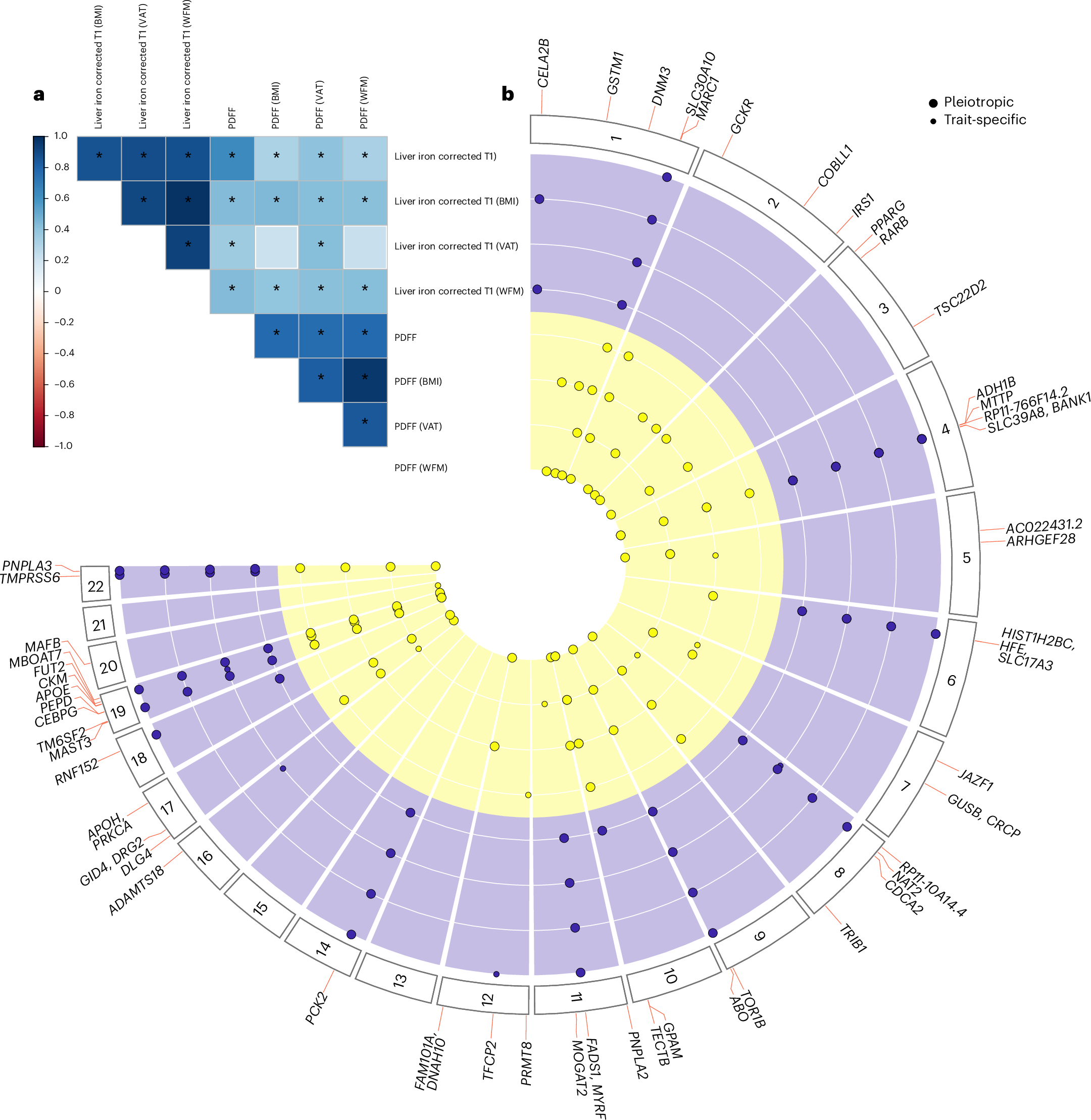2024-12-09 カロリンスカ研究所(KI)
◆研究チームは、UKバイオバンクなどからの36,000人以上のデータを解析し、MASLDに関連する27の新たな遺伝的変異を特定しました。これにより、肝臓特異的タイプはより攻撃的で深刻な肝障害を引き起こす一方、心血管疾患のリスクは低いことが示されました。一方、全身性タイプは糖尿病や心血管疾患、心不全、腎不全のリスクが高いことが判明しました。この知見は、患者ごとに異なる病気の進行を予測し、個別化医療の発展に寄与するものと期待されています。
<関連情報>
- https://news.ki.se/new-research-reveals-two-types-of-fatty-liver-disease
- https://www.nature.com/articles/s41591-024-03284-0
多遺伝子リスクスコアの分割により、代謝機能障害に関連する脂肪性肝疾患の異なるタイプが特定された Partitioned polygenic risk scores identify distinct types of metabolic dysfunction-associated steatotic liver disease
Oveis Jamialahmadi,Antonio De Vincentis,Federica Tavaglione,Francesco Malvestiti,Ruifang Li-Gao,Rosellina M. Mancina,Marcus Alvarez,Kyla Gelev,Samantha Maurotti,Umberto Vespasiani-Gentilucci,Frits Richard Rosendaal,Julia Kozlitina,Päivi Pajukanta,François Pattou,Luca Valenti & Stefano Romeo
Nature Medicine Published:09 December 2024
DOI:https://doi.org/10.1038/s41591-024-03284-0

Abstract
Metabolic dysfunction-associated steatotic liver disease (MASLD) is characterized by an excess of lipids, mainly triglycerides, in the liver and components of the metabolic syndrome, which can lead to cirrhosis and liver cancer. While there is solid epidemiological evidence that MASLD clusters with cardiometabolic disease, several leading genetic risk factors for MASLD do not increase the risk of cardiovascular disease, suggesting no causal relationship between MASLD and cardiometabolic derangement. In this work, we leveraged measurements of visceral adiposity identifying 27 previously unknown genetic loci associated with MASLD (n = 36,394), six replicated in four independent cohorts (n = 3,903). Next, we generated two partitioned polygenic risk scores based on the presence of lipoprotein retention in the liver. The two polygenic risk scores suggest the presence of at least two distinct types of MASLD, one confined to the liver resulting in a more aggressive liver disease and one that is systemic and results in a higher risk of cardiometabolic disease. These findings shed light on the heterogeneity of MASLD and have the potential to improve the prediction of clinical trajectories and inform precision medicine approaches.


